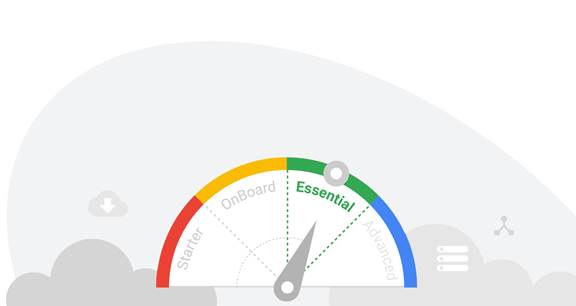Anthos and BigQuery: Spotlight on Technological Advancements That Could Help You
We partner with Google Cloud on digital transformation solutions like smart analytics, AI and ML and data management, but with a focus on app modernisation in this instance, there have been some improvements to Anthos and BigQuery in particular.
What’s Changed With Anthos?
Anthos is a modern application management platform that provides a consistent development and operations experience for cloud and on-premise environments. It frees companies from vendor lock-in, combines with enterprise IT management across Google, AWS, Azure and on-premise and helps to release the software rapidly for faster time-to-market. It provides all this while allowing the same consistent environment, the same superior security systems and the same centralised management platform that facilitates efficient scaling up and scaling down.
During the virtual conference, a bare metal version of Anthos was introduced. This is a deployment option to operate on physical servers on your own operating system without a hypervisor layer. It comes with lifecycle management, built-in networking, health checks, diagnostics, logging and monitoring and allows you to utilise your standard hardware and operating system images. Existing investments are checked and validated against Anthos infrastructure requirements as standard, too.
Anthos is also coming to mobile edge cloud, which means that, from a global control plane, companies can locate clusters to which they can deploy workloads, either on GCP, AWS or Azure, without changing a single line of code.
Ultimately, Anthos can now help you reduce cost and complexity, run closer to the hardware for improved performance and unlock new use cases for edge computing.
What’s New With BigQuery?
T. K. announced that BigQuery can now run and analyse data from Azure and Amazon without having to relocate to Google Cloud, which allows companies to leverage the power of BigQuery analytics according to the location of their datasets. This is how Google is showing its commitment to open multi-cloud.
Looker is now also amalgamated as a foundational component of Google’s analytics portfolio. This means that companies can take any data source on Google Cloud or any other cloud, have a consistent set of data definitions and expose these different data sources through a data API. Additionally, organisations can do dashboarding, build operation workflow and integrate data-driven applications into their business.
BigQuery is a serverless, highly scalable and cost-effective multi-cloud data warehouse that is designed for business agility, so, thanks in part to these new features, it helps companies find new insights and trends to make predictions that can improve overall operational efficiency.
BigQuery Omni: Underpinning BigQuery and Anthos and Saving Businesses Cross-Cloud Movement Costs
Finally, theres one new feature underpinning both technologies here: BigQuery Omni.
This multi-cloud analytics solution is powered by Anthos, which helps extend Google Cloud’s analytics platform to other public clouds (80% of public cloud users were active with at least one other cloud service provider, according to a recent Gartner survey).
With data scattered across multiple public clouds, BigQuery Omni leverages the best analytics and data warehouse technology to combine them, which means that companies no longer have to store all their data on Google Cloud.
The feature will not require any movement or copying of data from one public cloud to another (or the payment of the excess costs that come with that). BigQuery’s interface allows the user to query the data stored in Google Cloud, AWS and Azure without any unnecessary cross-cloud transfers, whilst the Anthos hybrid and multi-cloud application platform lets businesses build, deploy and manage the BigQuery engine (Dremel) on multiple clouds.
Preparing For a Post-Pandemic Customer Experience
In times of crisis, it is difficult to flourish and grow, but no organization has to take the challenging journey alone. With the extraordinary market issues created by COVID-19, adapting is crucial. Whatever your end goal looks like in your digital transformation journey, it starts with taking action. By combining word-leading Google Cloud technology and global Kin + Carta solutions, we can help you emerge from the pandemic stronger than before with a more robust strategy for improving your customer experience.
If you are interested in seeing how Kin + Carta can help you during your digital transformation journey with Google Cloud, please reach out to Silvija Pacheleva, Partner Development Manager, dedicated to Kin + Carta’s Google Cloud EMEA partnership.
If you would like to virtually attend the opening keynote from Google Cloud Next ’20: OnAir, you can find the presentation on-demand here.


